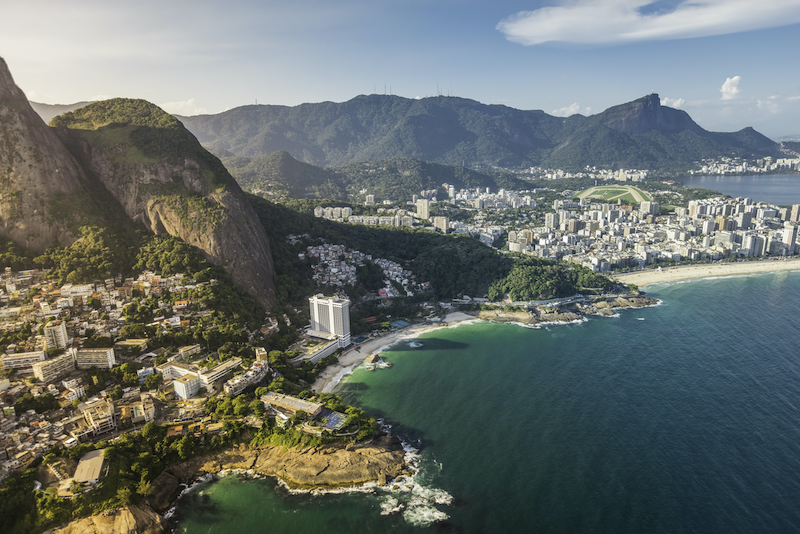
Self-interested and apathetic policies by its executive made Brazil one of the most infected countries in the world.
“So what? What do you want me to do?”
These were the words that the Brazilian President Jair Bolsonaro angrily unloaded on members of the press on April 28 when they inquired about the sharp increase of COVID-19 cases in Brazil. Bolsonaro’s unrelenting minimization of the risks that the pandemic poses to human life is a testament to his overall political strategy as well as the specific gamble he has taken with his approach to the pandemic.
Bolsonaro’s stance on the new coronavirus, which plays on the false dichotomy between the economic and health effects of the pandemic, sets the tone for his government’s general approach in managing the crisis. The state has at best inconsistently enacted its administrative apparatuses, particularly at the ministerial level, where a prevailing dogmatic anti-state narrative stands in the way of pragmatic and effective decision-making.
The ineffectual performance of the Brazilian federal government is noticeable by the facts and numbers. Brazil has about 500,000 confirmed cases and tens of thousands of deaths, making it the second-most infected country in the world. But what is probably more alarming is Brazil’s steep upward curve. Brazil lags behind other nations, with no proper testing strategy in place and a nationwide lockdown totally off the table. As a consequence, contagion runs rampant, the public health system struggles to keep up with the massive strain put on it, and mass graves have started to be filled up in parts of the country—beginning with the Amazon region capital city of Manaus.
Although the government has declared a state of calamity, allowing for more expedited actions as well as virtually unrestricted public spending, Brazil has unfortunately not left the initial stages of the crisis.
President Bolsonaro, often hailed as the “Trump of the Tropics,” has been widely condemned for leading the country through the crisis in a reckless and opportunistic fashion, putting his own interests ahead of those of the country in his pursuit of an increasingly unlikely reelection in 2022. Bolsonaro’s tactics involve doubling down on a “little flu” type denialism and an aggressive anti-scientific discourse every time he feels threatened. In mid-April Bolsonaro sacked a former health minister, Luiz Henrique Mandetta, for supporting more restrictive sanitary measures and by and large following World Health Organization protocols. The next health minister, Nelson Teich, softened the ministry’s discourse and took a more amenable approach to the President’s viewpoints. But seemingly not to the degree that the President wanted, as Teich also resigned after less than one month in office—precisely when tensions escalated over the use of chloroquine. The Ministry of Health is currently led by an interim minister.
Even if governmental agencies have generally been more in line than the President with the global scientific community and the standard policies adopted elsewhere, they have not lived up to the challenge either. The Central Bank of Brazil, for example, has taken efforts to increase liquidity in the market to tackle the economic downturn. Even with more cash in the market and relaxed regulations on private banks, however, the cost of new loans has remained high for companies and families.
But some ministers have faced the severity of the pandemic with particular reluctance and disdain. Brazil’s Foreign Minister, Ernesto Araujo, has gone so far as to compare social distancing to concentration camps. The Minister of Education, Abraham Weintraub, has in turn insisted that the country move ahead with this year’s national high school exam, by far the most important entry scheme for the main universities in the country, even with the pandemic underway. Given the unequal conditions that students from different socioeconomic classes face, which has only worsened since most schools, libraries, and other public facilities closed, the Brazilian people and different public bodies started pressing to postpone the exam. Eventually, the Brazilian Senate passed a bill suspending the exam during the pandemic.
The Ministry of Economy has been no less ideology-laden. The COVID-19 pandemic forced the ministry, led by Paulo Guedes, the financier turned “super minister,” to halt its plans to enact a long list of profound economic and administrative reforms. Yet Guedes and his team have not hidden their frustration with the “wartime Keynesianism” that became common practice around the world and landed forcefully in Brazil. They have lingered on fiscal austerity concerns, not embedding the proper amount of urgency in their actions. Nor have they understood that the new normal that lies ahead might be extremely different, meaning that the government should fully commit to the long-term impacts of the crisis and not blindly hope for a swift return to the original reform track.
According to the economist and Johns Hopkins University professor Monica de Bolle, the federal government, particularly Guedes himself, suffers from a type of volatility syndrome. The pathology manifests as a bipolar relationship with the crisis. Although countervailing public policies have been announced, they are usually insufficient and not properly articulated because embracing state activism feels like stepping on a minefield for technocrats schooled in lambasting economic interventionism.
Brazil’s resistance to government intervention was evident with respect to the three-month “corona-voucher” program of emergency basic income for informal workers approved in late March. The federal government intended to give only 200 BRL (around 40 USD) per month to each individual beneficiary. Only after a widespread social mobilization called upon Congress to act did Congress raise the monthly voucher threefold. Nonetheless, the final amount is still just a little over half of the official minimum wage in Brazil.
The government’s dithering has also led to the hyper-politicization of simple questions, such as the importation of ventilators. In a now emblematic operation, the governor of the poor northeastern state of Maranhão engineered a bypassing of the federal government to get 190 new machines delivered from China. Lack of guidance and leadership from the federal level, leading to serious coordination obstacles, has been a visible development. As the example with the state of Maranhão suggests, vertical coordination with the subnational governments has varied from formalistic to belligerent.
When Brazil reported its first coronavirus case in late February, state governors around the country reacted swiftly. In Rio de Janeiro, for instance, local authorities set out to impose rigorous restrictions on public services, including shutting down the local airports. Closing the airports prompted a fierce reaction from the federal government because it is the federal government that has legal authority over air transportation. Federal autonomous regulatory agencies rushed to remind governors of their mandate to provide public services, which only added more fuel to the fire. Eventually, the Federal Supreme Court stepped in to decide where the boundaries for legal authority over essential services and precautionary sanitary measures should lie. Commentators have interpreted the Supreme Court’s decision as a victory for the governors.
National cooperation is key for any country during a pandemic. In federalist systems such as Brazil, it may be harder, however, to achieve cooperation if different levels of government have different views relating to the appropriate policy instruments. Nevertheless, there exist important examples of federalist countries, such as Argentina, Germany, Australia, and Canada, where a sense of urgency prevailed, and the different levels of government reached consensus. These countries have dealt with the pandemic in a much more responsible way than has Brazil.
The inconsistent and underperforming federal executive branch in Brazil has also seen both the judiciary and the legislative branches take the lead in some crucial instances. As noted, the judiciary has confirmed the states’ capacity to legislate on social distancing and essential services. In another ruling, the Supreme Court overturned temporary limitations on the freedom of information law that the federal executive developed to address the overload that the pandemic has created for federal bodies. The federal executive’s list of defeats in the Supreme Court over its pandemic decisions—or the lack thereof—is much longer than its list of victories.
Confrontations with the legislature have not been much calmer for the federal executive. In addition to the threefold rise in basic income provision, legislation dealing with financial assistance to subnational governments did not turn out the way the Ministry of Economy had hoped because Congress reduced the obligations states must meet to obtain federal assistance. Other regulatory conflicts have taken place between the legislature and the executive, for instance, those involving utilities payment relief for residential consumers.
The clearer it becomes that the crisis in Brazil is getting out of control, the more difficult it will be for the federal executive to muster support from the most important institutional actors in the country. Bolsonaro is gambling on the proximate fatigue of the population with social distancing restrictions set at the local level because a large proportion of the country’s workforce lives hand-to-mouth and on informal jobs. He and his cabinet will most likely not be remembered for the occasional policies of his government that went right during the pandemic, but rather for the many policies that went seriously and deadly wrong.
This essay is part of an ongoing series, entitled Comparing Nations’ Responses to COVID-19.




